Water International
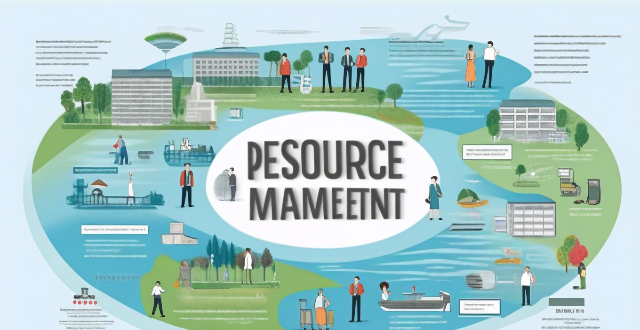
What are the legal and policy frameworks for water resource management at the national and international levels ?
Water resource management is a critical issue that affects the sustainability of ecosystems, the economy, and human well-being. To address this challenge, various legal and policy frameworks have been established at both national and international levels. At the national level, water resource management is governed by a combination of laws, regulations, and policies aimed at ensuring equitable access to water resources, protecting the environment, and promoting sustainable development. International legal and policy frameworks play a crucial role in addressing transboundary water issues and promoting global cooperation on water resource management. Effective water resource management requires a comprehensive approach that encompasses both national and international legal and policy frameworks.

What are the key challenges in managing water resources sustainably ?
Managing water resources sustainably is a complex task that involves various challenges, including climate change, population growth and urbanization, pollution and degradation of water bodies, overexploitation and unsustainable use, inadequate governance and policy frameworks, economic and financial constraints, social and cultural factors, technological limitations, ecological considerations, and international water sharing. Addressing these challenges requires a combination of technological innovation, policy reform, public education, and international cooperation. Sustainable water management is not only about ensuring enough water for current needs but also about preserving this vital resource for future generations.

Can international cooperation help mitigate climate-related conflicts ?
The text discusses how climate change can exacerbate conflicts and the role of international cooperation in mitigating these impacts. It outlines various challenges posed by climate change, such as water scarcity, food insecurity, natural disasters, and economic instability, and how they can lead to conflicts. The text then explores the potential roles of international cooperation, including diplomacy, technology transfer, financial support, education, and capacity building. It also highlights challenges to achieving effective international cooperation, such as political will, economic disparities, and cultural differences. Finally, the text concludes that international cooperation is essential in addressing climate-related conflicts and that collaborative efforts can lead to a more resilient and equitable world.

What are some examples of how climate change has affected international security ?
Climate change has significant implications for international security, including resource scarcity and competition, displacement and migration, state fragility and failed states, environmental refugees, and national security threats. These challenges require global cooperation and strategic planning to mitigate their effects on international stability.

What strategies are being employed to manage transboundary water conflicts ?
The text discusses the strategies for managing transboundary water conflicts, including collaborative governance, integrated water resources management, adherence to international law and agreements, adaptive management, and public awareness campaigns. The strategies aim to ensure equitable use of shared water resources and prevent disputes between neighboring countries.

Are AirPods waterproof or water-resistant ?
This text discusses the water resistance of Apple's AirPods, highlighting that the original and second-generation models have no official water resistance rating, whereas the AirPods Pro and third-generation models carry an IPX4 rating for water resistance. It explains the meaning of the IPX4 rating, offers safety precautions to protect AirPods from water damage, and concludes by emphasizing that AirPods are not completely waterproof.
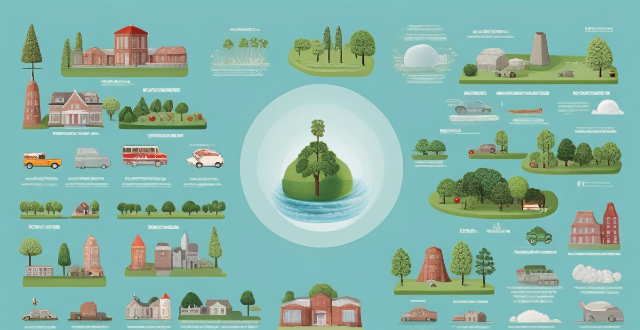
How does climate change influence resource competition and its impact on international relations ?
Climate change is significantly impacting resource competition and international relations by altering the availability and distribution of natural resources like water, food, and energy. This results in increased competition among nations for these resources, affecting economic systems, political structures, and global stability. Water scarcity due to changing precipitation patterns is causing conflicts, especially in regions sharing rivers or aquifers. Changes in temperature and rainfall patterns are affecting food production, leading to increased import dependency and potential conflicts over limited resources. Energy resource competition is shifting towards renewables due to climate change impacts on fossil fuels. Countries are engaging in mitigation and adaptation efforts through international agreements, technology transfer, and disaster risk reduction. While climate change presents challenges, it also offers opportunities for global cooperation in addressing this common threat.

What role do climate models play in developing international climate policies ?
Climate models are crucial for understanding the potential impacts of climate change and identifying areas that require immediate action. They help policymakers project future climate scenarios, assess impacts on ecosystems and human societies, evaluate policy options, and support international negotiations. By providing scientific insights into the potential consequences of climate change, climate models aid in developing effective adaptation strategies and mitigating greenhouse gas emissions.

How can universities improve their support services for international students ?
Universities can enhance support for international students by offering cultural orientation, language training, academic tutoring, writing assistance, social integration activities, career development, and internship opportunities.

How do changing precipitation patterns influence water resources management ?
The text discusses the impact of changing precipitation patterns on water resources management, which involves the regulation and allocation of water for various uses like drinking, irrigation, industrial processes, and ecosystem maintenance. The key points include precipitation variability, water resources management, and climate change impacts. The changing precipitation patterns can lead to unpredictability in water availability, infrastructure stress, agricultural water needs, ecosystem health, urban water use, and policy and legislation changes. To cope with these impacts, mitigation measures such as reducing greenhouse gas emissions, rainwater harvesting, and water conservation practices can be implemented. Adaptation measures include flexible water allocation systems, infrastructure upgrading, integrated water resources management, and ecosystem restoration. The conclusion emphasizes the need for proactive planning, investment in resilient infrastructure, and the adoption of innovative practices that promote sustainability and flexibility in the face of an uncertain future.

How does deforestation contribute to water cycle disruption ?
Deforestation contributes to water cycle disruption through soil erosion, surface runoff, and groundwater depletion. This leads to droughts, flooding, pollution, water scarcity, and climate change. Sustainable forest management is crucial to mitigate these effects.

Can international students apply for scholarships ?
International students can apply for various scholarships offered by universities and organizations to offset the cost of tuition, books, and living expenses. These include merit-based scholarships awarded based on academic or leadership skills, need-based scholarships considering financial situation, athletic scholarships, diversity scholarships, and first-generation college student scholarships. External organizations like the Fulbright Program and Rotary International also provide opportunities. To apply, research available scholarships, review requirements, prepare application materials, apply early and regularly, and seek additional funding sources.

What are some popular shopping apps that provide international shipping options ?
The text provides a summary of popular shopping apps that offer international shipping options, including Amazon with its Global Store, Amazon Global, and Prime International Shipping; eBay with its Global Shipping Program and International eBay Sites; AliExpress with Standard Shipping, CaoNiLao Premium Shipping, and DHL Shipping; ASOS with Global Shipping and free returns; and Zalando with International Shipping and partnerships with local postal services.

What policies and international agreements aim to protect biodiversity ?
The text provides an overview of various policies and international agreements that aim to protect biodiversity, including the Convention on Biological Diversity (CBD), the United Nations Framework Convention on Climate Change (UNFCCC), the Ramsar Convention, the International Union for Conservation of Nature (IUCN), the World Wildlife Fund (WWF), the Nagoya Protocol, the Global Environment Facility (GEF), national policies and legislation, and the Great Ape Project. These initiatives are crucial for maintaining ecosystem health and human well-being, but face challenges in implementation and enforcement.

What policies and international agreements aim to address the dual crises of climate change and biodiversity loss ?
The text discusses various policies and international agreements aimed at addressing climate change and biodiversity loss. These include the Paris Agreement, Convention on Biological Diversity (CBD), Aichi Biodiversity Targets, United Nations Sustainable Development Goals (SDGs), Ramsar Convention on Wetlands, and International Union for Conservation of Nature (IUCN) Red List of Threatened Species. The text emphasizes the interconnectedness of these issues and the need for collaborative efforts to achieve a sustainable future.
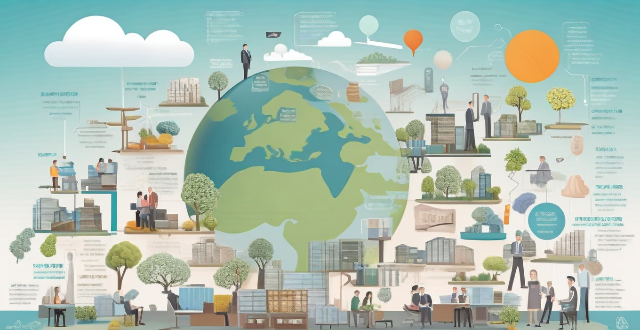
What is the importance of international cooperation in addressing climate change ?
International cooperation is crucial in addressing the global challenge of climate change. It enables shared responsibility, economic efficiency, political will, global impact, innovation and technology transfer, and strengthening multilateralism. By working together through international organizations and treaties, countries can take decisive action on climate change and create a sustainable future for all.

How effective are large-scale water transfer projects in alleviating water scarcity ?
Water scarcity is a global issue, and large-scale water transfer projects aim to alleviate it by transporting water from areas with abundant resources to those with scarce ones. These projects can increase water availability, diversify water sources, and provide environmental benefits such as restoring depleted aquifers and wetlands. However, they also face challenges like high costs, negative environmental impacts, and social and political issues. To maximize the benefits of these projects while minimizing their drawbacks, careful consideration of their potential consequences and involvement of all relevant stakeholders in the decision-making process are essential.
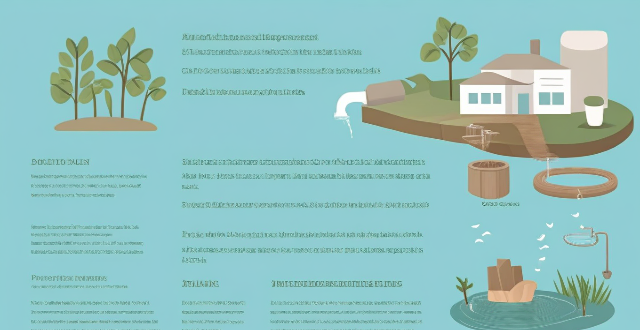
How can we improve water resource management in our community ?
The article discusses the importance of water resource management in our community and suggests various strategies to improve it. These include raising awareness through educational campaigns, implementing water-saving measures like fixing leaks and using low-flow fixtures, upgrading infrastructure such as wastewater treatment plants, promoting sustainable practices like xeriscaping and green roofs, and fostering collaborative efforts among different stakeholders. By adopting these approaches, we can ensure the long-term availability of clean water while protecting the environment.
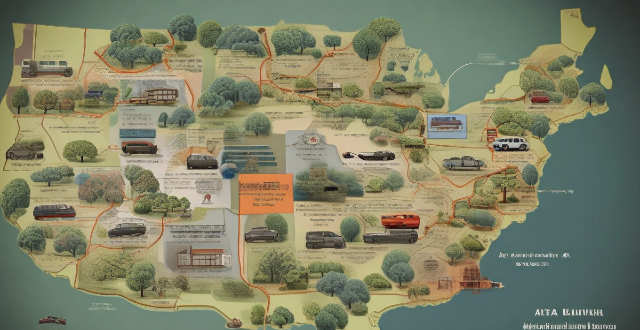
How do immigration policies influence international relations ?
Immigration policies have a significant impact on international relations, affecting economic partnerships, diplomatic ties, and cultural exchange. These policies can attract highly skilled workers, boost innovation, and enhance trade relationships, but they can also lead to job market issues and social tensions. Cultural diversification from immigration can improve mutual understanding and respect between nations, while restrictive policies can hinder the movement of diplomatic personnel. A country's approach to refugees and asylum seekers can influence its global standing, and the handling of refugee crises can lead to political tensions. Economic migration can cause a brain drain or be viewed as a form of development assistance. Immigration policies are a critical area of focus for international relations due to their far-reaching implications.

How can international cooperation improve global climate governance ?
International cooperation is crucial in the fight against climate change. It can improve global climate governance by enhancing information sharing and technology transfer, promoting policy coordination, strengthening legal frameworks, facilitating financial flows, building capacity and institutions, and promoting public awareness and participation. Countries can work together to collect and analyze data on climate change, share advanced technologies, coordinate policies, engage in joint research, enforce international agreements, provide climate finance, encourage green investments, build capacity for implementing climate policies, establish strong institutions, raise public awareness, and engage civil society organizations. By working together, countries can address the challenges of climate change more effectively and create a sustainable future for all.

Can you provide examples of successful international cooperation initiatives ?
Successful International Cooperation Initiatives International cooperation is a vital aspect of global progress, enabling countries to work together towards common goals. Here are some examples of successful international cooperation initiatives: 1\. The United Nations Framework Convention on Climate Change (UNFCCC) aims to stabilize greenhouse gas concentrations in the atmosphere at a level that prevents dangerous human interference with the climate system. It has been ratified by 197 parties, making it one of the most widely accepted international agreements. 2\. The World Health Organization (WHO) is the directing and coordinating authority on health within the United Nations system. It provides leadership, research, norms and standards, and technical support to countries worldwide. 3\. The International Space Station (ISS) is a joint project among five space agencies: NASA (United States), Roscosmos (Russia), JAXA (Japan), ESA (European Space Agency), and CSA (Canadian Space Agency). It serves as a microgravity and space environment research laboratory. 4\. The Convention on International Trade in Endangered Species (CITES) is an international agreement between governments aimed at ensuring that international trade in wild animals and plants does not threaten their survival. It regulates or bans trade in species listed in its appendices.

What are the best websites for international shopping ?
The text provides a summary of the best websites for international shopping, including Amazon, eBay, AliExpress, ASOS, and Farfetch. It highlights the features and benefits of each website, such as global reach, easy shipping, customer reviews, auction-style shopping, buyer protection, affordable prices, diverse product range, direct shipping, fashion-forward clothing, free shipping, wide size range, luxury fashion, authentic products, and global shipping. The text concludes that these websites offer a great selection of products from different countries and provide convenient shipping options for international shoppers, meeting their needs for affordable fashion or luxury items.

How does sports diplomacy contribute to international relations ?
Sports diplomacy is a form of soft power that uses sports events and activities to foster relationships between nations. It contributes to international relations by enhancing mutual understanding, promoting economic cooperation, and promoting peace and security. Sports diplomacy promotes cultural exchange and builds trust between nations. It also attracts investment, creates job opportunities, reduces tensions, and enhances security cooperation. Overall, sports diplomacy plays a crucial role in building stronger relationships between nations.

Are there any cashback websites that support international shopping ?
The text provides a list of cashback websites that support international shopping. These websites offer cashback on purchases made at various online stores across the world. Some popular examples include TopCashback, BeFrugal, Rakuten, Mr. Rebates, and Giving Assistant. Each website has its unique features and benefits, such as offering cashback on purchases made at specific retailers or having additional features like browser extensions or mobile apps. Overall, these cashback websites provide an excellent opportunity for international shoppers to save money while shopping online.

How can international cooperation aid virus origin tracing efforts ?
The text discusses the importance of international cooperation in virus origin tracing efforts. It outlines various ways in which collaboration can aid this process, including sharing information and data through global databases and real-time reporting systems; pooling resources and expertise by establishing centralized laboratories and training programs; coordinating responses and policy making through global health organizations and international agreements; and building public trust through transparent communication and community engagement. The text emphasizes that successful virus origin tracing requires a multidisciplinary approach and the involvement of experts from different fields. It highlights the need for transparency, openness, and ethical considerations in research activities to ensure cultural sensitivity and community benefits. Overall, the text underscores the significance of international cooperation in unraveling the mysteries of virus origins and preventing future pandemics.

What role do international organizations play in climate financing ?
International organizations play a crucial role in climate financing by providing funding, technical assistance, and policy guidance to support the transition to a low-carbon economy. Their efforts are focused on mitigating the effects of climate change and adapting to its impacts, with contributions including funding from multilateral development banks and the United Nations Framework Convention on Climate Change, technical assistance from the United Nations Environment Programme and the International Renewable Energy Agency, policy guidance from the International Energy Agency and the Organisation for Economic Co-operation and Development, and collaboration and partnerships through initiatives like the Climate Investment Funds and private sector initiatives.

How does climate change affect water resources and availability ?
Climate change affects water resources and availability through melting glaciers, changes in precipitation patterns, sea level rise, increased evaporation rates, and impacts on ecosystems. These impacts can lead to water scarcity, flooding, contamination of freshwater sources, and declines in biodiversity. To mitigate these effects, it is important to reduce greenhouse gas emissions and implement adaptation strategies such as improved water management and conservation measures.

What are the most popular destinations for international students ?
The United States, the UK, Canada, Australia, Germany, and France are among the most popular destinations for international students due to their renowned universities, high-quality education, diverse cultures, and career opportunities. Each country offers unique experiences and benefits such as historical significance in the UK, multicultural societies in Canada and Australia, affordable tuition fees in Germany, and cultural immersion in France. These destinations provide not only quality education but also a chance to immerse oneself in different cultures, languages, and ways of life, making them highly sought after by international students worldwide.